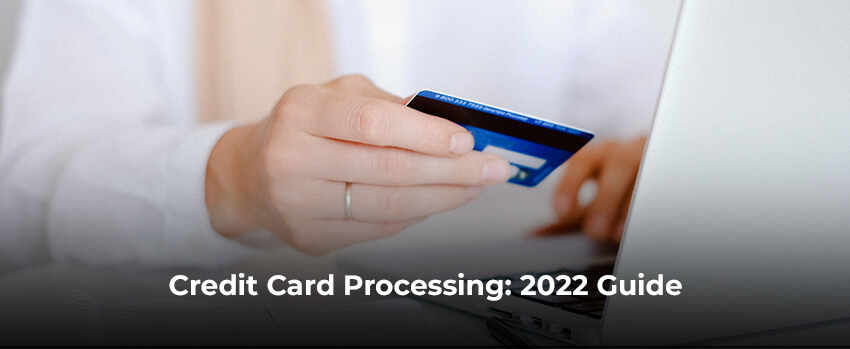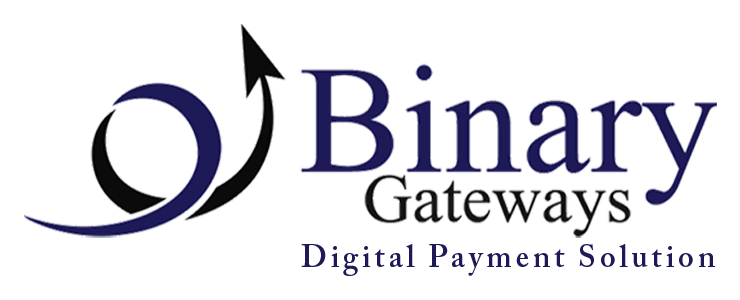Credit Card Processing: 2022 Guide
Credit Card Processing: 2022 Guide

Initiation to Credit Card Processing
To run and regulate a business, you don’t need to know the plus and minus of credit card processing. But it surely assists to get the lay of the land. In this particular blog, we come to you with everything you need to know regarding credit card processing—and how to choose the best option for your business.
Four most asked questions about Credit Card Processing
What does a credit card processing company do?
A credit card processing company (like Binary Gateway) looks after credit and debit card transactions for businesses.
How does credit card processing operate?
Credit card processing works through various parties. These include issuing banks, acquiring banks, and merchant services, providers.
How much does credit card processing charge?
Binary Gateway Pricing is simple for card transactions, chip card transactions, and contactless (NFC) payments. The fee for physically entered transactions will be charged differently.
How can you accept credit card payments?
To accept credit card payments, you require a credit card reader. Square’s latest and greatest reader is just $49 and accepts EMV chip cards and NFC payments.
What is credit card processing?
Taking a credit card payment can appear simple enough. A customer gives away a card, you process it, and with Square, the money generally comes into your account within one to two days. (With Binary Gateway Quick Deposit, it lands instantly. The price is 1% per deposit). But under the shed, many things are going on. The moment you swipe or dip the card until and unless the time money is settled down into your bank account, there are various parties involved. And each of them handles an important step in the links of events. Having a general knowledge of how credit card processing works helps you know where you might attract fees—and informs your conclusion about what credit card processing system makes the most perception for your business.
The parties that are involved in credit card processing
Let’s take an example you go to Starbucks called Cup of Coffee and pay for a black coffee. Here are the official names of the players involved in the particular transaction:
- The cardholder: This is the person with the credit card (You are the initiator)
- The credit card: That rectangular piece of plastic with your payment credentials on it.
- The merchant: The business accepting your credit card as payment for goods or services
- The point-of-sale system: The interface used by the merchant to accept credit card payments.
Now let’s go deeper for a second. There are a few additional parties involved in the process.
- The issuing bank
- The acquiring bank
- The merchant services provider
Let’s look at each of these in detail:
What is an issuing bank?
The issuing bank is the financial institution that gives you your credit card and accompanying line of credit. It’s primarily your credit card company. Issuing banks majorly act as middlemen between you and the credit card networks by issuing contracts with cardholders for the phase of the repayment of transactions. For example, your issuing bank can be Capital One.
What is an acquiring bank?
The acquiring bank is generally known as a merchant bank or acquirer the bank that gives the transactions to the network, which then moves ahead on to the issuing bank.
What is a merchant services provider?
A merchant services provider is an institute that permits businesses to accept payments by credit card, debit card, and also NFC mobile wallet (like Apple Pay, Samsung Pay, and Android Pay). A merchant services account is set with an organization that has terms with the issuing and acquiring banks. Your merchant services provider permits the processing of electronic payments when your customers want to pay for the merchandise they have bought.
Email us anytime!
Email customer service 24/7 at info@binarygateways.com
![]()
Call us anytime!
Reach customer care 24/7 at (801) 761-5001
What is a Payment gateway?
Say Starbucks had an online store to sell merchandise like T-shirts and mugs. A payment gateway would be involved in processing those online credit card transactions. A payment gateway gives this facility to transfer the information between a payment portal (like a business’s website) and the acquiring bank. It encodes fragile information like card credentials to make sure everything is safe throughout the process.
Payments are just the commencement.
Binary Gateway Assist to take care of the day-to-day work process, too. We have all kinds of services to help you save time and run more smartly.
Merchant credit card processing
How do you become a merchant services account, holder?
Traditionally, if you wish to start processing credit cards, you would have to apply for a merchant services account at a bank, which can be a clumsy process. After you were approved, you would then associate your point-of-sale system with your merchant account and could start accepting credit cards.
But with Binary Gateway, things work a bit differently. Binary Gateway itself has a merchant services account with acquiring banks.
What is a high-risk merchant services account?
In the credit card processing world, some types of businesses are declared as “high risk.” High-risk merchant services accounts can have unreasonable fees and stringent terms.
Institutions may also decline high-risk merchant accounts.
There’s no compulsory rule, but a few types of businesses tend to be named as high-risk merchants more than others.
These can include businesses that sell goods or services that are illegal, buyers’ or membership clubs, creit counseling or repair services, and businesses,
CBD Dealers that involves in questionable marketing tactics.
How does credit card processing work?
Now that we’ve seen all the parties involved in credit card processing, we’ll walk around how everything goes. Let’s go back to Starbucks. You hand the black coffee and the card and she processes it. What happens next?
Here is how a credit card is processed with Binary Gateway:
Authorization
When a merchant swipes (in the case of EMV) a customer’s card, the request is submitted to Binary Gateway. We then send the transaction to the acquiring bank, which then gives a signal to the issuing bank for authorization. The issuing bank is looking for sufficient funds. It is also running the transaction through fraud models to decide if the transaction is safe and secure (to protect the cardholder and the issuing bank).
Batching
This is the resolution stage, i.e., how the money from a transaction is transferred to the acquirer to start the process of laying down it into the merchant’s account. It’s called batching because payments are sent in a big group.
Funding
The funding (or settlement) step is when businesses get the amount from a credit card sale deposited into their account. Binary Gateway Deposit schedule is generally within one to two business days. But if you set up Binary Gateway Instant Deposit, you get your money instantly.
Credit card processing fees
Many companies have a lot of hidden fees when it comes to credit card processing. These can incorporate transactional fees (like interchange reimbursement fees and assessments), flat fees (like PCI fees, annual fees, early termination fees, and monthly minimum fees), and incidental fees (like chargebacks or verification services). Binary Gateway, on the other hand, has none of these.
Choose your credit card processing solution smartly, some companies can have concealed fees.
Binary Gateway pricing is easy —there are no concealed fees. The fee for manually entered transactions is may vary according to the nature of the company. These fees apply to all business types, including NGOs.
Some Related Posts:
· A BRIEF GUIDE ON HOW TO INTEGRATED PAYMENT PROCESSING
· HOW TO ACQUIRE A BUSINESS LOAN: EVERYTHING YOU NEED TO KNOW
· ADD LIVE CHAT TO INCREASE YOUR BUSINESS VALUE
Accepting credit cards
What is a credit card machine?
You need to get a new sort of technology to process credit cards. A credit card machine, also known as a point of sale (POS) is a machine that interfaces with payment cards to make fund transfers electronically. Newer point-of-sale systems also get mobile NFC payments like Apple Pay, Android Pay, and Samsung Pay.
How to set up credit card processing for your small business
If this world is completely new to you, or are just starting your first business in your life, getting set up to process credit cards may seem disheartening. Fortunately, that doesn’t have to be the case. These days, it’s very easy to get up and start running by accepting credit cards at your small business with the help of Payment. Binary Gateway works straight with the device you already have to accept credit card payments.
How to process credit cards
Credit cards are processed uniquely based on the sort of card. Magistrate cards are not swiped vertically through the credit card reader. EMV chip cards are dipped vertically into the payments reader for the complete transaction. You can spot an EMV card by the little chip in the corner of the card.
EMV chip cards are a much more safe form of payment than magistrate cards.
What type of credit cards should you accept?
You should make your business up to accept EMV chip cards as fast as possible. EMV chip cards are far safer than magistrate cards. Magistrate cards are relatively easy to forge and have shot up fraud rates in the United States. EMV chip cards have increased security features that preserve against duplicate and counterfeiting. To help restrain fraud, U.S. banks are rolling out EMV chip cards to consumers en masse.
But there’s one more reason you should accept EMV chip cards at your business—the liability shift. Under the liability shift (which went into consequence in October 2015), businesses that do not have set up to accept EMV chip cards could now be on the holder for some sort of fraudulent transactions (whereas earlier the banks gulped this cost). So to safeguard your business from undesired charges, it’s logical to get a point-of-sale system that is EMV compliant.
What other types of payments should you accept?
In inclusion to EMV chip cards, it’s a great idea to also obtain NFC mobile payments like Apple Pay, Android Pay, and Samsung Pay. These new payment methods are just as safeguarded as EMV but are a much better customer experience. Whereas EMV chip cards take some seconds to process (which is slow-moving than magistrate cards), NFC mobile payments are instant. They also harvest steam. The research firm BI Intelligence projects that merchants will fast begin to unfasten the capacity of mobile payments this year, future forecasting that U.S. in-store mobile payments will expand from $120 billion in 2016 to $808 billion by 2019 and may increase in the coming years.
To be accepted for a high-risk merchant account within just 24hrs Click here or dial + (801) 761-5001
